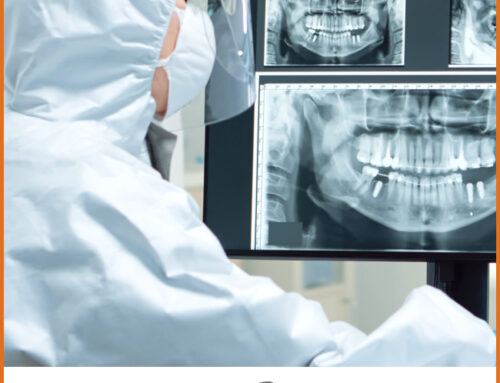Nearly 50% of adults in the United States have gum disease. This makes periodontal deep cleaning a common dental treatment. It aims to remove plaque and tartar from below the gum line. This helps prevent more gum damage.
The experience of getting a periodontal deep cleaning varies. Some people might not feel pain, mainly those with shallow gum pockets. But others might feel discomfort during or after the treatment.
Key Takeaways
- Periodontal deep cleaning is used to treat gum disease by removing plaque and tartar.
- The level of pain associated with the procedure can vary from patient to patient.
- Patients with minimal gum pocket depths may experience less discomfort.
- The procedure is common among adults with gum disease.
- Dental professionals often take steps to minimize pain during the treatment.
Understanding Periodontal Deep Cleaning and Pain Factors
It’s important for Phoenix patients to know what affects pain during periodontal deep cleaning. This procedure, also known as scaling and root planing, treats periodontal disease. It removes plaque, bacteria, and tartar from below the gum line and on tooth roots.
Pain or discomfort during this procedure can be caused by several things. The depth of gum pockets is a big factor. Deeper pockets make the procedure harder and can be more painful.
Factors Influencing Pain During Periodontal Deep Cleaning
- The depth and severity of periodontal pockets
- The extent of root surface irregularities
- The presence of active infection or inflammation
- Patient’s pain threshold and anxiety level
Another key factor is the severity of root surface irregularities. These irregularities can trap bacteria and tartar, making cleaning harder and more uncomfortable. Active infection or inflammation can also make the procedure more sensitive and uncomfortable.
Dental professionals focus on managing pain during periodontal deep cleaning. They use various anesthetics to reduce discomfort. These include local anesthesia, conscious sedation, and other pain management strategies tailored to each patient.
By understanding these factors and talking to a dental professional, Phoenix patients can prepare better for the procedure. They can also explore ways to manage any discomfort they might feel.
How Painful is a Periodontal Deep Cleaning?
Periodontal deep cleaning is key for good oral health but can worry some people. Those who fear pain or have dental anxiety can ask a periodontist about pain relief options.
Anesthesia Options for Periodontal Deep Cleaning
A periodontist can use topical anesthetic gel or injectable anesthetics to numb the area. This makes the procedure more comfortable. Topical gels numb the surface, while injectables numb deeper.
To lessen discomfort, Phoenix patients can talk to their periodontist about these options:
- Topical anesthetic gel for surface numbing
- Injectable anesthetics for deeper numbing
After the procedure, there are ways to reduce pain. Patients can use over-the-counter painkillers and rinse with salt water. This helps with healing and swelling.
Managing pain after a deep cleaning is possible with professional advice and self-care. It’s important to follow the periodontist’s post-procedure care instructions.
Conclusion
It’s important to understand what affects pain during periodontal deep cleaning. This knowledge helps Phoenix patients make better choices about their treatment. Knowing what to expect and how to handle discomfort makes the process easier.
After the procedure, symptoms like bleeding and sensitivity are usually short-term. They shouldn’t last more than a week. To help with swelling or bleeding, follow the recovery tips given by your dentist.
Managing pain during deep cleaning cleaning requires both professional advice and personal care in Phoenix, AZ. It’s key to talk to a periodontist about your concerns. This way, you can find the best treatment plan for you.
By being proactive and keeping up with good oral hygiene, you can have a smoother recovery. This ensures the best results from your periodontal deep cleaning treatment.
Need Dental Treatments in Phoenix, Arizona?
Contact us today at Studio B Smiles for professional cosmetic dental treatments or consultations in the Phoenix and Scottsdale area!



